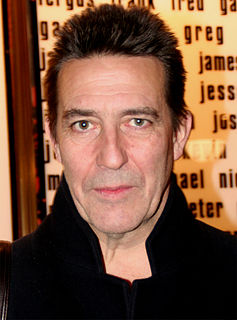A Quote by Doug Liman
VR should offer an experience that's more exciting than watching in 2D, and we're pretty good at 2D storytelling, so the bar's already pretty high.
Quote Topics
Related Quotes
I hope people don't compare 2D and 3D because 3D's new, it's unfair to compare to 2D which is really sophisticated, even when we're jaded about it. 3D just began, give it a chance, let the equipment and projection system catch up and be better, let the price go down, let more filmmakers get a hold of it more easily.
What makes a mockery of a lot of these 3D conversions, where they're shot in 2D and converted to 3D. Having laid a real 3D movie, you realize that it's right in the production design. You design sets that enhance the 3D and you design interactive elements, like the rain or smoke. If you're shooting 2D, you don't know about that.
If you see a bad live action film, what are the conclusions you draw? Typically, it is that they made a bunch of mistakes, a bad script, wrong casting. You get into 2D, and you get a few films that are not strong films. And what is the conclusion? That it's 2D? I beg to differ. It's a convenient excuse, but it's just wrong.
On stage you never watch yourself. You just experience it, and then you go home, and you feel pretty good if you gave a pretty good performance or crappy if you didn't. But in TV and film, you actually have to experience it while you're doing it, and then you have to watch it. And then when you're watching it, you watch it with a different sensibility than how you experienced it.
The industry in Japan moving toward CGI is not as severe and extreme as in the U.S. The animation industry in the U.S. is firing 2D animators and closing those studios, but I think it's possibly because the national traits of the U.S. prefer super-realism. Since Japan is a country that prefers plane vision, I don't think we will leave 2D and substitute hand-drawing with CGI entirely.
Something that's good in the mini-culture of 'Happy Endings' is that the goal is to try and make each other laugh. There is a pretty high bar, and you want to make the writers laugh, and you want to elevate what's already great material - and also, we're like, 'Who is even watching this? Let's just go for it.'




































